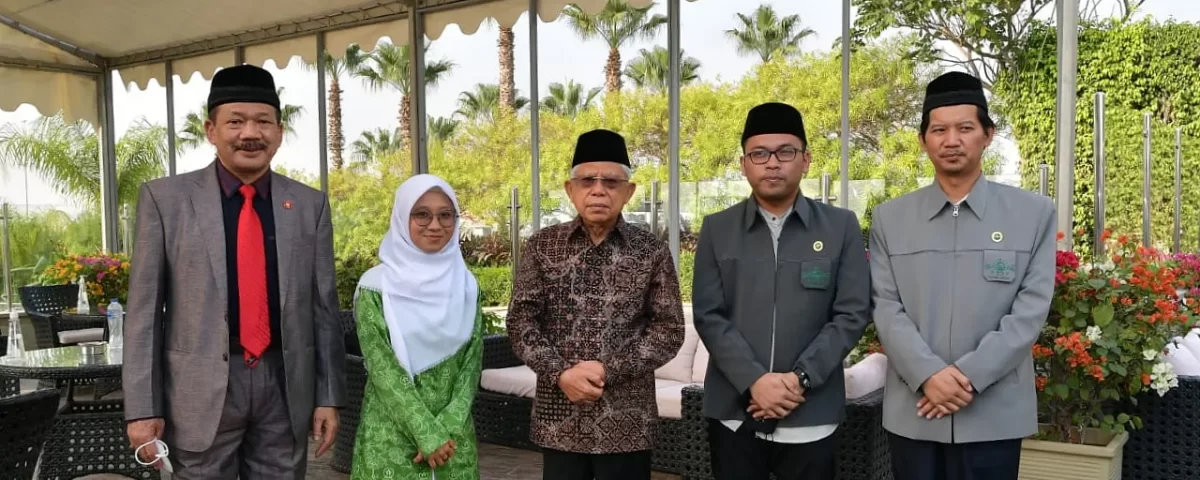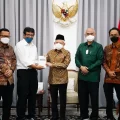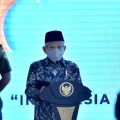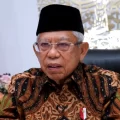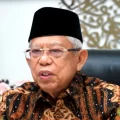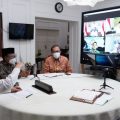Cairo, wapresri.go.id – According to Vice President KH Ma’ruf Amin, the practice of sharia economic development, especially in Indonesia, is very good at the moment. However, he considered that the level of public literacy regarding Sharia economics at the macro level was still relatively low.
For this reason, the Vice President hopes that Nahdlatul Ulama (NU) students would continue to actively improve public literacy about sharia economics, especially at the macro or theoretical level.
“Nowadays a lot of talk about sharia economics is only at the micro (practical) level. We need more people to know about the macro, the philosophy, as this sharia economy needs to grow,” the Vice President asked when he had an audience with the Egyptian Nahdlatul Ulama Special Branch Management (PCINU) at the Royal Maxim Palace Hotel Kempinski, Cairo, the Arab Republic of Egypt, Sunday (06/11/2022).
One way to increase the literacy of the community, said the Vice President, was by increasing scientific writings that discuss the theory and philosophy of sharia economics.
“Although the movement has been massive until we make various things related to the sharia economics, it may require a lot of (scientific) writing to change theoretical and philosophical thoughts related to sharia economics at a macro level,” he said.
In addition, on this occasion, the Vice President also asked the Egyptian PCINU to continue to maintain NU’s mindset that was moderate, and dynamic, and maintain an approach (manhaj) or a clear scientific basis.
“In the past, NU was also conservative, especially before the NU Congress in Lampung in 1992, so that the so-called decision-making system within NU was born, which I call the dynamics of thought,” explained the Vice President.
“That is NU’s framework of thinking, it is not static, not liberal but it is moderate, dynamic, but also in manhaj,” he added.
Therefore, the Vice President hopes that the NU mindset would continue to be the guidance, especially by NU students to address all issues, including in the life of the nation and state.
“We can hear various opinions but we have to filter whether it meets the criteria for the NU mindset or not,” he said.
For example, continued the Vice President, regarding the debate that true ( kaffah) Muslims were not Indonesianist and Indonesianist was not true (kaffah) Muslims, NU responded to this with an approach that the two did not contradict each other and negated each other.
“This is the thought that I raised and now it has begun to be understood by many parties. However, I ask that this NU pattern of thinking continues to be socialized,” he asked.
Previously, the Chairperson of the Tanfidziyah PCINU Ahmad Rikza Aufarul Umam reported to the Vice President that the Egyptian PCINU, in terms of education, currently focused on classical and contemporary scientific discourse, and was oriented towards the production of scientific works.
“And as directed by the Vice President, we also encourage the Egyptian PCINU study institutions to lead to strengthening studies on religious moderation,” he said.
Then, said Rikza, PCINU Egypt was also strengthening research and innovation among Indonesian students in Egypt.
“There is a lack of research methodology here. At the Al-Azhar campus, research methodology is not directly taught, so the Egyptian PCINU has taken the initiative to build a research and literacy culture, including through collaboration with the National Research and Innovation Agency (BRIN),” he explained.
Furthermore, Rikza said that in developing this research culture, PCINU Egypt currently had obstacles related to access to Indonesian and religious scientific journals, especially at the national level, because all of them were paid.
“Please help to facilitate access to these journals,” he hoped.
Furthermore, in the social sector, said Rikza, the Egyptian PCINU in collaboration with the NU Amil Zakat, Infaq and Shadaqah Institute (LAZISNU) participated in managing and empowering zakat funds, as well as emergency funds to guarantee student safety and health.
“Then regarding economic empowerment, PCINU Egypt currently managed several business units, there are Indonesian culinary restaurants, then lodging, and goods or cargo expedition services for sending student books back to Indonesia,” he added.
Lastly, regarding the strengthening of the sharia economy, said Rikza, the Egyptian PCINU had initiated the establishment of the Sharia Economic Community (MES) two years ago.
“Regarding digital literacy, we are also working on a project to promote the repertoire of the archipelago and the thoughts of the scholars of the archipelago, including Sheikh Nawawi Al-Bantani, to be widely promoted in international circles by being translated into English and Arabic,” he concluded.
In addition to the Chairperson of the PCINU Tanfidziyah, also present at this hearing, the Chair of the Egyptian PCINU Syuriyah H. Faiz Husaini and the Chairperson of the Egyptian PCI Fatayat NU Dzurriyah Ahsantiyah.
Meanwhile, the Vice President was accompanied by the Head of the Vice President Secretariat Ahmad Erani Yustika, Special Staff for the Vice President for Communication and Information Masduki Baidlowi, Special Staff for the Vice President for Poverty Reduction and Regional Autonomy Mohammad Imam Aziz, Special Staff for the Vice President for General Affairs Masykuri Abdillah, and Head of Baznas Noor Ahmad. (DMA/LHS-BPMI Setwapres)

